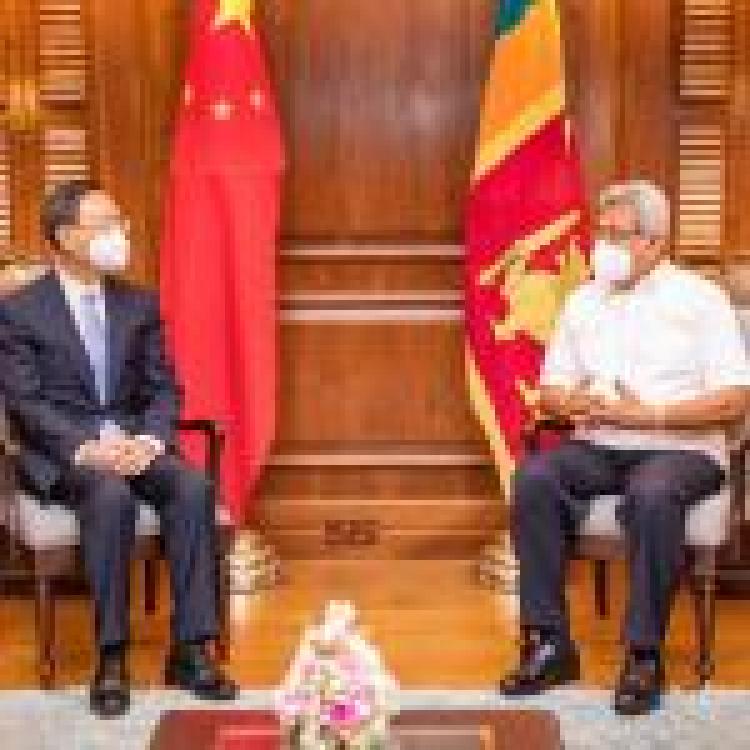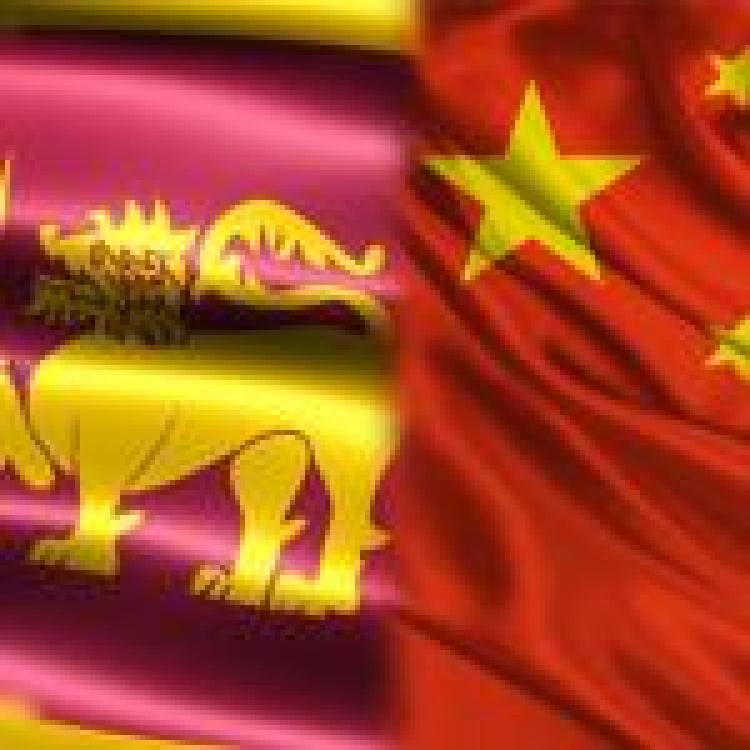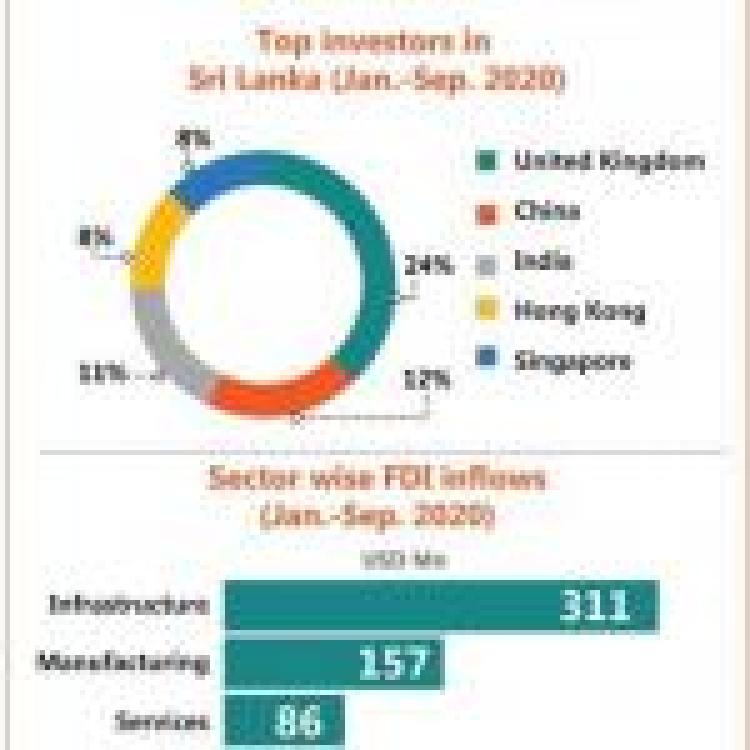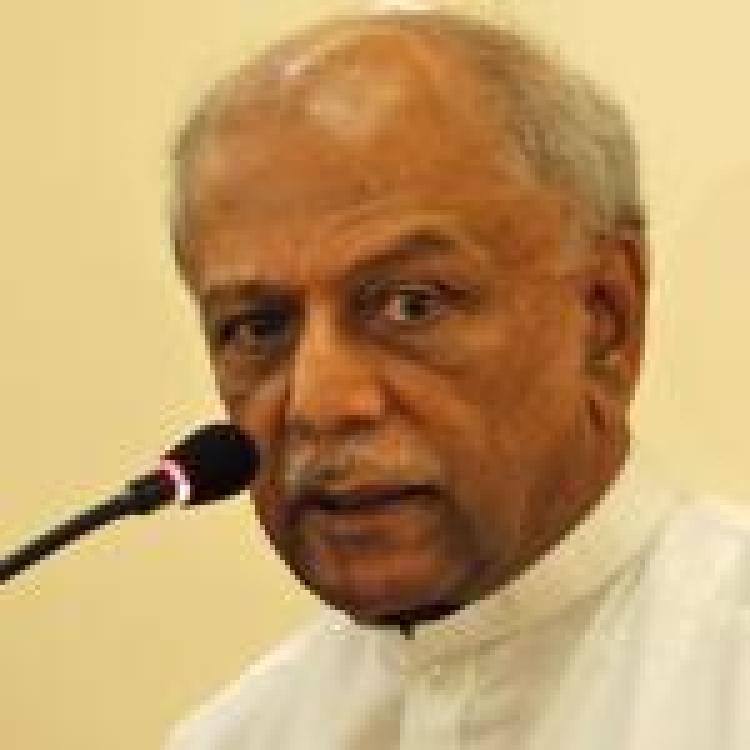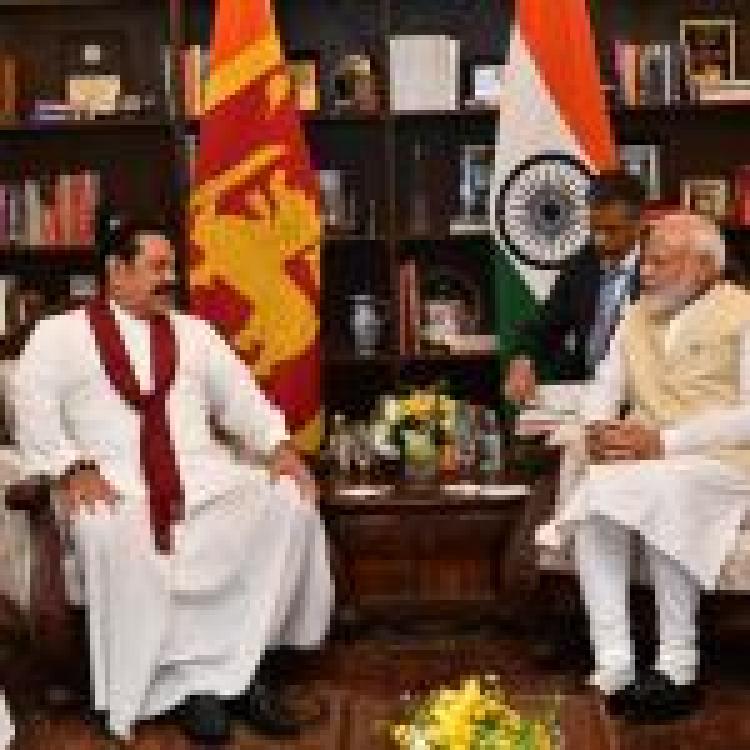![]()
Following concerns raised by opposition parties, civil society groups, and labour unions, over Sri Lanka’s “Colombo Port City Economic Commission”, State Minister Ajith Nivard Cabraal has denied allegations that the government is transforming Sri Lanka into a “Chinese colony”.
This statement follows the appointment of a five-judge panel to consider petitions filed by several parties including senior representatives of the United National Party (UNP); the Chairman of the Association of Information Technology Professionals (AITP); Executive Director of Center for Policy Alternatives (CPA); and former Parliamentarian Wasantha Samarasinghe. The Bar Association of Sri Lanka (BASL) has also filed a petition against the bill.
Responding to criticism of the bill, Agriculture Minister Mahindananda Aluthgamage alleged a “foreign force” were motivating opposition politicians and whipping up public criticism. Minister Cabraal claimed that Ananda Muruththettuwe, Chief incumbent monk of Abhayarama Temple, assertion that this would lead to Sri Lanka becoming a “Chinese colony” were unfounded and highlighted Sri Lanka’s dire economic situation.
In his statement he highlighted that the debt-to-GDP ratio had risen to 98%; there were high debt repayments pending over the next few years; persistently low economic growth and challenges in attracting foreign investment. Cabraal defended the bill describing the project as a site drawing international investments.
“This is not just about Chinese investment but welcoming all countries to be a part of Sri Lanka’s growth story”, he said”.
The Rajapaksa’s have claimed that this project, which seeks to build on reclaimed land at Colombo’s seafront, would attract $15 billion dollars in investment to the country.
Read more here: 'Deeper into poverty' - Sri Lanka's economic devastation detailed in World Bank report
Criticism over the bill
There has been widespread opposition to the bill with SJB Legal Secretary, Thisath Wijayagunawardane, claiming that the bill allowed a team of foreigners, “accountable to none other than the President”, to run the Port City and would interfere with “provincial authority”.
Wijayagunawardane maintains that clauses within the bill would prevent investment in Sri Lankan rupees, “which will keep out Sri Lankans…it will be like a forbidden city within Colombo”. He further added that “the government claims it stands for ‘one country, one law’, but the Bill allows for running the Port City like a foreign country with special laws.”
The UNP has further criticised the bill claiming that it is “inconsistent with Parliament’s control over public finances” and “allows for the abuse of power and fails to ensure a transparent system of checks and balances”. Under the bill the President would be able to appoint or remove Commission members, overseeing the port’s decisions and presenting to Cabinet investment approvals.
Cabraal has defended these powers claiming that the powers over any tax concessions, licences, investment approvals or regulatory decisions, would be done with the concurrence of regulators, such as the Central Bank or the Auditor General. He further added that such decisions would be gazetted, with the documents presented to Parliament within a period of three months, or they would become defunct.
Ceylon Federation of Labour has also raised concerns over provisions that would exempt employers operating within the Port City from compliance with Sri Lanka’s labour laws. The Hindu notes that the Union had fought and won a case in the late 1970s when the J.R. Jayawardene government tried to deny labour law protection to workers at the newly established Free Trade Zone.
General Secretary of the Federation, T.M.R. Raseedin, has warned that with the passage of the bill, “we will be going back to an era when ‘hire and fire’ ruled employer-employee relationships.”
The petition filed to Supreme Court requests that the bill must obtain a two-thirds majority in parliament and be passed by a referendum for it to become law.
The port has also raised concerns from environmentalists and fishermen.
International Relations
The Hindu highlights that the Port City project was initially launched during the second term of Mahinda Rajapaksa’s presidency during a state visit by Chinese President Xi Jinping. Following Rajapaksa’s electoral defeat, the government led by President Maithripala Sirisena and PM Ranil Wickremesinghe vowed to develop the site into an “Indian Ocean financial hub”, however since the return of the Rajapaksa administration, there has been a deterioration in Indo-Sri Lankan relations.
Following Sri Lanka’s unilateral withdrawal from the East Container Terminal (ECT),
Following Sri Lanka’s unilateral withdrawal from the East Container Terminal (ECT), worth an estimated $700 - $800 million dollars, India has withdrawn from discussions over the West Container Terminal (WCT).

